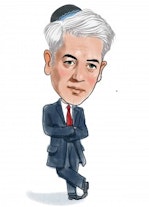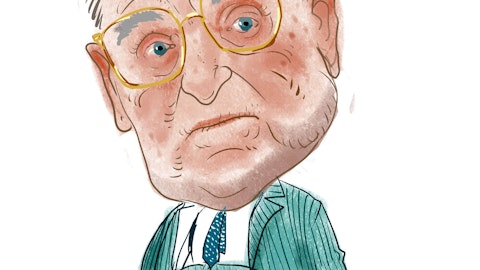At the end of day one of the 8th Annual Value Investing Congress in New York, Bill Ackman presented his thesis on one of his biggest long ideas. His battle with General Growth Properties Inc (NYSE:GGP) and Brookfield Asset Management Inc. (NYSE:BAM) took center stage. There was much speculation leading up to Ackman’s presentation, yet it should have been no surprise when the fund manager started his pitch on General Growth.
Bill Ackman, CEO of Pershing Square Capital, is a situational specialist who maintains a very concentrated portfolio. Ackman also recommended General Growth in 2009 at the Ira Sohn Conference. Brookfield, the largest shareholder of General Growth, is head-to-head with Pershing Square in a battle that has Ackman and Pershing pushing for a sale of the company. Brookfield and Pershing are the top two shareholders in General Growth – Brookfield at number one with over 420 million shares, and Pershing at number two with over 72.2 million shares.
General Growth, the U.S. based REIT, owns and operates regional malls throughout the country. The company filed the largest real estate bankruptcy case in U.S. history in April of 2009. Brookfield and Pershing were key financiers of the restructuring effort, which emerged from bankruptcy in 2010 with 183 malls in 43 states.
Since the restructuring, the real estate investment trust has spun off two companies: Howard Hughes Corp. and Rouse Properties Inc., in an effort to focus on the highest-quality real estate. Moreover, the REIT has paid down and refinanced debt to reduce costs. The company is also keeping up with Simon Property Group, Inc (NYSE:SPG) in some areas of retail real estate performance, including tenant sales and occupancy.
In a letter to General Growth’s board in September, Ackman called for the company to consider a sale and stated he had been in contact with Simon. The board rebutted by stating that the best value for all shareholders would be best achieved by General Growth continuing to operate independently. Simon’s proposal would value General Growth’s stock around $28, versus the current trading price around $19.20. Other notable investors who increased their 1Q stake during the second quarter were Carlson Capital, Jim Simons and Cliff Asness – see all funds owning General Growth here.
At the end of the second quarter, General Growth saw a revenue decline of 8% to $1.24 billion, with a net loss increase of 53% to $306 million. This revenue decline was driven by a minimum rent decrease of 9% to $784 million and a tenant recoveries decrease of 9% to $360 million. The company’s tenant sales rose 9% to $533 per square foot on a trailing twelve month basis in the second quarter, compared with a gain of 10% to $554 for Simon.
Late in his pitch, Ackman took jabs at Brookfield by noting he “had fun” reading the prospectus for Brookfield Property Partners, LP. Ackman argued that this partnership is simply a way for Brookfield to monetize their real estate assets. He also claimed that if Brookfield sold its stake in General Growth in the same manner, public shareholders would have no voting rights. Ackman believes that Brookfield wants to prevent a Simon merger to instead focus on Brookfield Property Partners.
Interestingly, a few analysts have recently spoken in favor of Brookfield’s strategy. Mark Rothschild at Canaccord Genuity noted that it would be tough for Brookfield to replicate the current high-quality property portfolio of General Growth. Cedrik Lanchance of Green Street Advisors has said that Brookfield’s philosophy is to invest for the very long term, and that General Growth fits this strategy quite nicely. Regardless of the outcome of this situation, it is worth watching in the coming months.
In related news, Ackman and Pershing have recently launched activist campaigns against The Procter & Gamble Company and Canadian Pacific Railway Limited (NYSE:CP). Canadian Pacific is expected to increase revenues 10% during 2012, and another 7% the following year. These growth prospects are driven by a 4.3% improvement in volume during 2012, rising by a similar amount in 2013. In the five years before Pershing Square acquired its stake, Canadian Pacific had a return of negative 18%, though it is up almost 25% year to date.
Ackman’s picks for last year included J.C. Penney Company, Inc. (NYSE:JCP) and Howard Hughes Corp. J.C. Penney expects a reduction in net sales to $13.97 billion in 2013 on a projected 18% same-store sales decline. Same-store sales fell 20.3% in the first half of fiscal year 2013. CEO Ron Johnson also expects the second half of the year to be similar to the first half, which implies a decline in comparable sales of approximately 20%. J.C. Penney is down over 30% year to date on questions of whether J.C. Penney can really transform retail.
For a complete look at Bill Ackman’s 13F portfolio, continue reading here.





